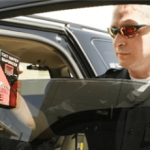Department of Justice Suspends Controversial Airport Cash Seizure Program
In November 2024, the AP reported, "US suspends controversial asset-forfeiture program targeting airline travelers" stating, "U.S. deputy attorney general has suspended a controversial civil asset-forfeiture program by the Drug Enforcement Administration that targeted unsuspecting airline passengers and subjected them to potentially unlawful seizures of cash from their bags." So are airport cash seizures and airport asset forfeitures a thing of the past?
No.
FBI, DEA, and TSA work together and coordinate with local law enforcement. If you request any information regarding any of these agencies and their special unit task forces through public records laws like the Freedom of Information Act, your FOIA will be denied. They will neither confirm nor deny that they exist, even though it is common knowledge and widely reported in published cases. Obtaining additional details regarding the ongoing activities of top-secret organizations stealing cash from domestic airline travelers will prove to be Mission Impossible.
We know that airport cash seizures and asset forfeitures will be transferred to local airport police agencies. The government will still steal your money if you travel with a large sum of currency (despite being completely legal), but local authorities will handle it. This has been confirmed through an anonymous source at DTW Detroit Metro Airport.
For nearly a decade, "cold consent" encounters at major US airports that lead to cash seizures and asset forfeitures have been criticized by the government itself. In 2015, the Office of the Inspector General reported:
The Department of Justice Office of the Inspector General (OIG) today released a report on the Drug Enforcement Administration’s (DEA) use of cold consent encounters at mass transportation facilities. The OIG’s report found that the DEA does not collect sufficient data on cold consent encounters to enable it or the OIG to assess whether the encounters are conducted in an unbiased or effective manner, raising both civil rights concerns and questions regarding the best use of limited law enforcement resources. The OIG’s review further found that the DEA’s management of its interdiction task force groups does not ensure that training and operational requirements are clearly established, communicated, or followed. Cold consent encounters by DEA task force groups occur when an agent approaches an individual based on the officer’s perception that the person is exhibiting characteristics indicative of drug trafficking, but without the officer having any independent predicating information. The encounter typically entails the officer asking for consent to speak with the individual and, if the agent thinks it warranted, to search the individual’s belongings. Within DEA operations, cold consent encounters are primarily used by task force groups comprised primarily of DEA Special Agents and state and local law enforcement officers who work to interdict drug trafficking at mass transportation facilities, such as airports, train stations, and bus stations. As the Department of Justice has previously noted, cold consent encounters are more often associated with racial profiling than contacts based on previously acquired information.
DOJ OIG, Review of the Drug Enforcement Administration’s Use of Cold Consent Encounters at Mass Transportation Facilities, (Jan. 2015).
Ten years later, CJ Ciaramella reports in Reason Magazine that:
OIG Investigators found that the DEA paid one airline employee tens of thousands of dollars over the past several years in proceeds from cash seized as a result of their tips. However, the vast majority of those airport seizures aren't accompanied by criminal prosecutions. This has led to years of complaints from civil liberties groups that the DEA is abusing civil asset forfeiture—a practice that allows police to seize cash and other property suspected of being connected to criminal activity such as drug trafficking, even if the owner is never arrested or charged with a crime.






